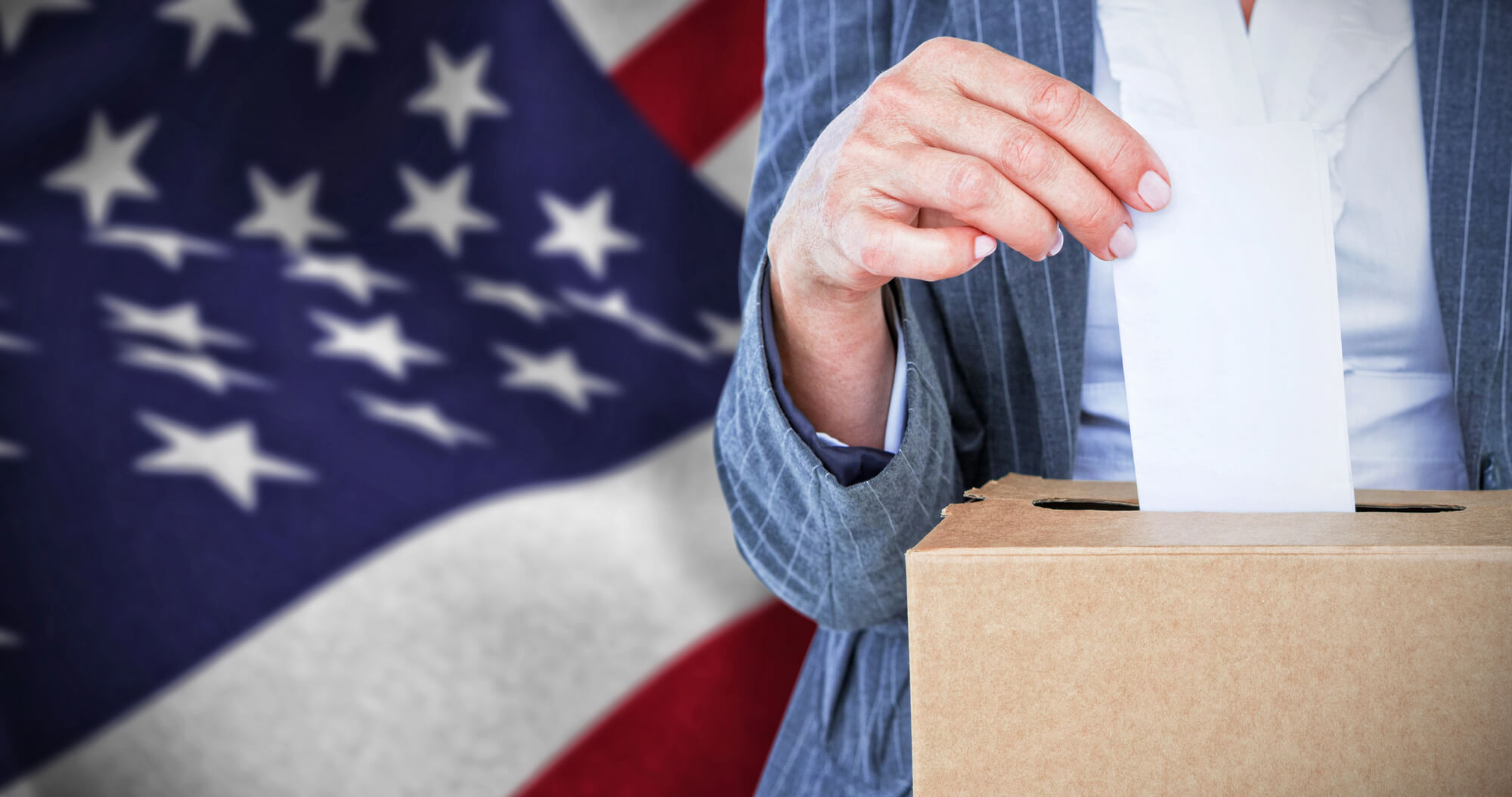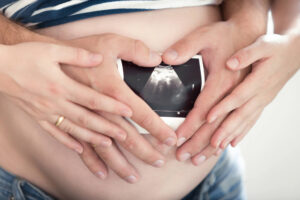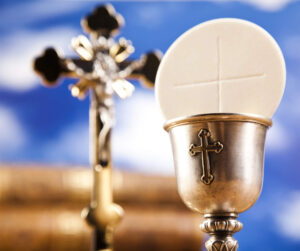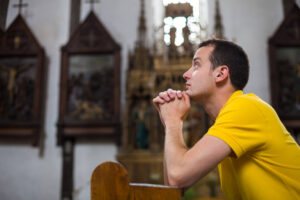
The Role of Theology of the Body in Voting
October 11, 2024
The Theology of the Body (TOB), articulated by Pope St. John Paul II, provides a profound framework for understanding human dignity & relationships, which are essential considerations in the context of the voting booth. This pivotal teaching emphasizes the inestimable worth of every individual, rooted in the belief that each person is created male or female in the image & likeness of God. As such, the Theology of the Body informs the moral & ethical dimensions of political engagement, guiding voters to make choices that reflect respect for inherent human dignity, & the communal common good, especially in regard to uplifting & strengthening the foundational cell of society created by God, that of the natural family.
Understanding Human Dignity

At the heart of the Theology of the Body is the affirmation of the intrinsic dignity of the human person as a body-soul composite. This dignity is not merely a philosophical concept but a lived reality that should influence all aspects of life, including political decisions that affect the gift of our bodies created by God. TOB underscores that every person, regardless of their circumstances, age or size, possesses an immeasurable worth that must be acknowledged & protected. This begins with the right to life.
“The inviolability of the person, which is a reflection of the absolute inviolability of God, finds its primary and fundamental expression in the inviolability of human life. Above all, the common outcry, which is justly made on behalf of human rights — for example, the right to health, to home, to work, to family, to culture — is false and illusory if the right to life, the most basic and fundamental right and the condition of all other personal rights, is not defended with maximum determination . . . The human being is entitled to such rights in every phase of development, from conception until natural death, whether healthy or sick, whole or handicapped, rich or poor . . . [Moreover, if,] indeed, everyone has the mission and responsibility of acknowledging the personal dignity of every human being and of defending the right to life, some lay faithful are given particular title to this task: such as parents, teachers, healthworkers and the many who hold economic and political power” (Pope St. John Paul II, Christifideles Laici).

Our current culture threatens the sanctity of human life & the dignity of the body in a plethora of ways from gender ideology to pornography, from abortion to euthanasia, as well as, perceived “food” & “medicine” whereas both can actually contribute to making us sicker. This perspective compels voters to consider how candidates’ policies uphold or undermine the dignity of individuals, particularly the most vulnerable members of society including unborn babies, innocent children, the elderly, the mentally or physically ill. Overall, are their policies predominantly helping uplift every male & female human person, body & soul, or harming/threatening our God-given potential?
The Call to Love and Relationships
The importance of relationships, calling individuals to love authentically & selflessly, as God loves, is emphasized in the teachings of Theology of the Body. This understanding of love extends beyond personal relationships to encompass familial, social & cultural dimensions. Voters are encouraged to support policies that foster community, promote peace, protect the God-given rights of all individuals, & not only recognize, but promote the natural structure of the family as a martial union between a man & a woman who have the right and duty to raise their children according to their deeply held beliefs. This aligns with the Church’s broader social teaching, which advocates for the common good & the well-being of society as a whole. The common good is “the sum total of social conditions which allow people, either as groups or as individuals, to reach their fulfillment more fully and more easily” (Gaudium et Spes 26).
Moral Responsibility in Political Choices

Engaging with the Theology of the Body also involves recognizing the moral responsibility that comes with casting our vote. The faithful are called to form our consciences in accordance with Catholic Church teachings, ensuring that our political choices reflect our commitment to the dignity & God-given identity of every man or woman as a son or daughter of God, truly as our very brothers & sisters. This moral framework is essential in a political landscape where issues often become polarized & complex. We must navigate these challenges by grounding our decisions in the principles of love, respect, & virtue that the Theology of the Body communicates.
The Intersection with Catholic Social Doctrine
TOB intersects with pillars of Catholic social doctrine, particularly in its emphasis on the common good, solidarity & the dignity of individuals underpinning the truth that all human life is sacred. The Church teaches that political engagement is a form of service to others, & this service must be rooted in a commitment to uphold opportunities without hindrance to apply our free will & reason to do the good God has determined, in order for us & society to thrive. Informed voters are thus called to evaluate candidates’ policies not only based on their economic implications but also on their impact on human relationships & the overall health of the community. The principle of “solidarity” recognizes that we are one human family despite nationality, ethnicity, ideology, or status, & that we ought to love our neighbors.

“Your country stands upon the world scene as a model of a democratic society at an advanced stage of development. Your power of example carries with it heavy responsibilities. Use it well, America!”
(Pope St. John Paul II, Newark, 1995)
Practical Implications for Voters
- Evaluating Candidates: We should assess candidates based on their commitment to policies that protect & promote human dignity & flourishing (according to God’s plan). This includes examining their positions on issues such as abortion, healthcare, education, equal job/work opportunities, the economy which all directly affect the lives of individuals & families. Although, no platform will perfectly align with Church teaching, at times Catholics are, as Pope Francis recently put it, “voting for the lesser of two evils” when considering policies. It is important though to keep in the forefront of our minds that the USCCB continues to reiterate “the threat of abortion” remains the “preeminent priority” for their political guidance to Catholic voters. So the “lesser evil” could be which administration is it likely that less innocent pre-born babies will be killed.
- Advocating for the Vulnerable: The Theology of the Body encourages voters to advocate for those who are exploitable or even voiceless in society. This advocacy can take many forms, from supporting legislation that protects the rights of the unborn to promoting policies that address parental rights regarding their own children, & helps the impoverished, the elderly, & the mentally or physically ill.
- Engaging in Dialogue: Voters are called to engage in respectful dialogue about political issues, fostering a culture of listening, understanding & cooperation in pursuit of the truth of acting in accord with our human nature, the way God intended. This aligns with the Church’s teaching on the importance of community & relationships, encouraging individuals to work in solidarity for the common good.
- Participating Actively: The faithful are encouraged to participate actively in the political process, not only by voting but also by praying, having the courage to speak the truth with care, love & mercy when the appropriate opportunities present themselves. This active participation reflects the call to live out our Catholic faith in all areas of life with hope & grace. Meditating with holy scripture, reading the Catechism of the Catholic Church, engaging in the sacraments will help to continually form & inform all of us to abide by the truth of our faith & put on the mind of Christ (Phil 2:5) in all that we do.
“Any politics of human dignity must seriously address issues of racism, poverty, hunger, employment, education, housing, and health care. … If we understand the human person as the “temple of the Holy Spirit” — the living house of God — then these issues fall logically into place as the crossbeams and walls of that house. All direct attacks on innocent human life, such as abortion and euthanasia, strike at the house’s foundation” (USCCB, Living the Gospel of Life: A Challenge to American Catholics).

Ultimately, God’s blueprint for the human person, as presented in the tenets of the Theology of the Body, play a crucial role in shaping the voting decisions of Catholics by emphasizing the dignity of the human person, the importance of relationships & community, as well as our moral duty in political engagement that is fruitful in doing God’s work here on earth. By grounding our choices in these principles, voters can contribute to a society that respects & uplifts every individual, fostering a culture of life & love that reflects the foundational truths of our beautiful Catholic faith. As we approach the ballot box, Catholics are called to remember that our votes are not just political choices but expressions, as moral agents, of our commitment to the dignity & well-being of all people according to God’s will.
Join Ruah Woods Institute’s staff in prayer for a free, safe, peaceful & just election next month, that helps to unify our country & brings our nation closer to God’s will for us.

Written by, Evie Estes,
Curriculum Production Manager,
Editor, Sales & Website Support
Share